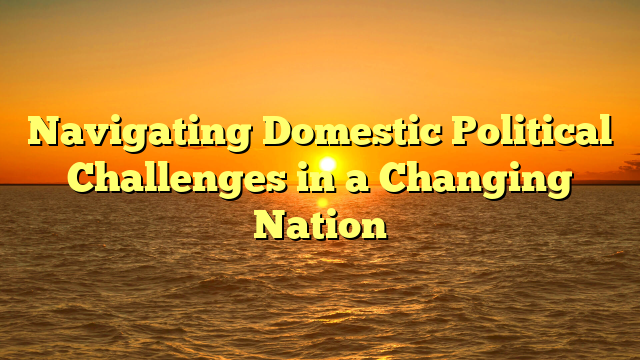In recent years, domestic politics have undergone rapid shifts driven by societal change, economic pressures, and the evolving expectations of citizens. The political landscape is no longer shaped solely by traditional party structures, but also by the rising influence of grassroots movements, digital activism, and independent political actors. These developments present both opportunities Pattimura4d and challenges for policymakers who must navigate a complex web of interests while maintaining public trust.
One of the most significant challenges in domestic politics today is the widening gap between government institutions and public sentiment. While democratic frameworks emphasize representation, citizens increasingly demand direct engagement and transparency. Social media platforms have amplified these expectations, creating an environment in which political missteps can quickly escalate into national controversies. In this new era, political leaders must be adept not only at policy-making but also at real-time communication and public relations.
Economic inequality remains another pressing concern. Although economic growth figures may appear stable on paper, the benefits are not always distributed evenly. Many citizens still face stagnant wages, rising living costs, and limited access to quality public services. This imbalance fuels political discontent and often becomes a central issue in electoral campaigns. Policymakers are under growing pressure to implement reforms that address these inequalities without destabilizing economic stability.
Political polarization has also intensified in recent years, making bipartisan cooperation increasingly difficult. While healthy debate is essential in a democracy, the deepening ideological divide can paralyze decision-making. Parties often focus on short-term political victories rather than long-term national interests, resulting in legislative gridlock. This situation erodes public trust in political institutions, as citizens see more conflict than constructive problem-solving.
At the same time, civil society is becoming more active and vocal. Grassroots organizations, community leaders, and advocacy groups are taking on greater roles in influencing policy decisions. These actors are not only raising awareness about key issues but also holding government accountable. While this activism strengthens democratic participation, it can also create pressure points when demands conflict with political realities or budgetary constraints.
Environmental policy has emerged as another major arena of domestic political debate. As the effects of climate change become more apparent, citizens are calling for stronger environmental protections and a transition toward renewable energy. However, balancing environmental sustainability with economic growth remains a challenge. Policymakers must find ways to incentivize green innovation without alienating industries that rely on traditional energy sources.
The role of the media in domestic politics cannot be overlooked. Independent journalism plays a critical role in informing the public and scrutinizing government actions. Yet, the spread of misinformation and partisan reporting has complicated the political environment. Ensuring that citizens have access to accurate, reliable information is essential for a healthy democracy, but it requires coordinated efforts between government, media organizations, and civil society.
Ultimately, the future of domestic politics will depend on the ability of political leaders to adapt to changing realities. This includes embracing technological advancements, addressing systemic inequalities, fostering unity in polarized environments, and ensuring that governance remains transparent and accountable. Citizens, too, have a vital role to play in shaping the political agenda—through informed voting, civic engagement, and active participation in public discourse.
In conclusion, domestic politics today are defined by rapid change, heightened public expectations, and complex policy challenges. Navigating these dynamics requires leadership that is both visionary and pragmatic. Only through open dialogue, collaborative problem-solving, and a shared commitment to the nation’s well-being can the political system evolve to meet the demands of the future.
